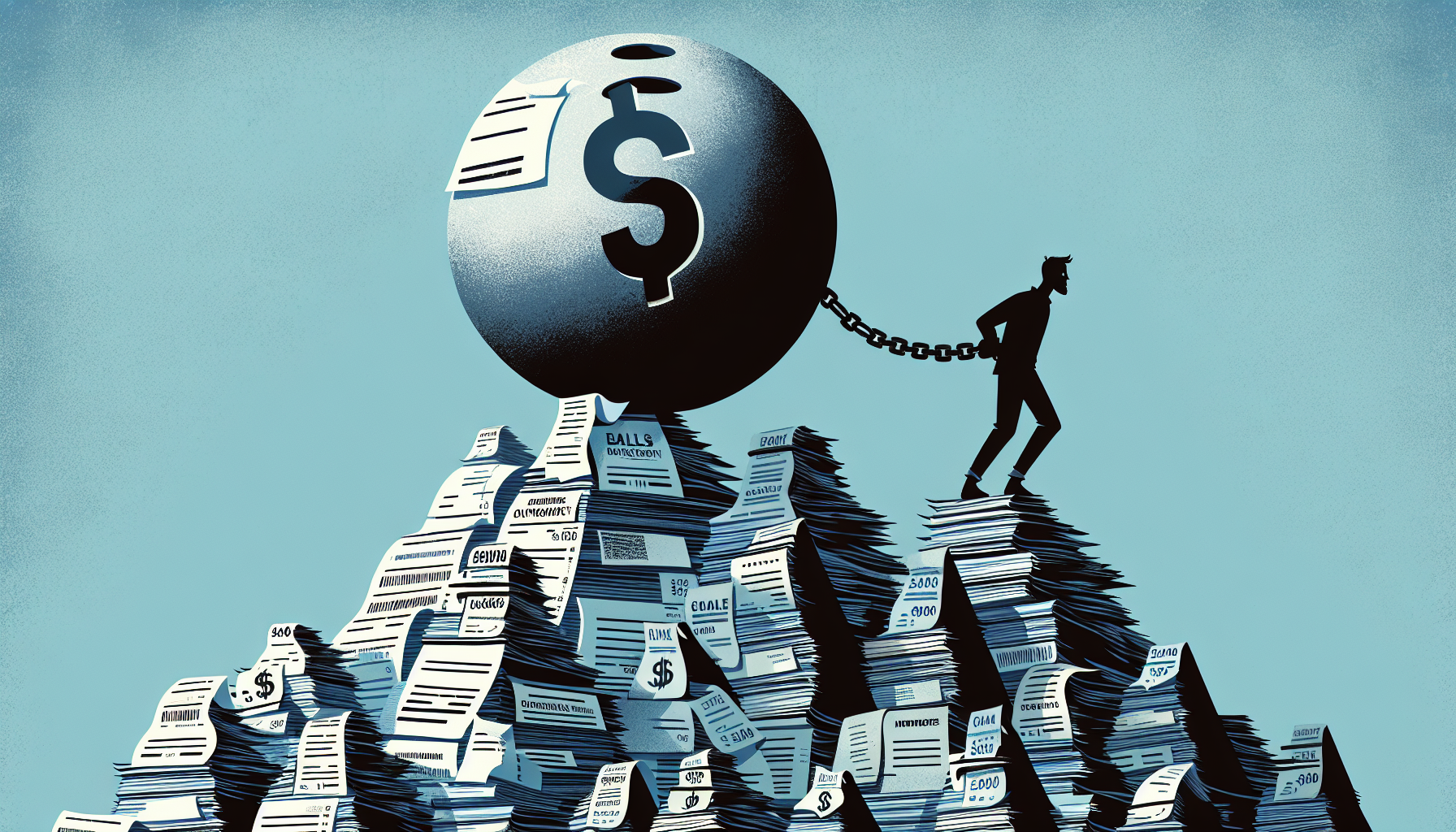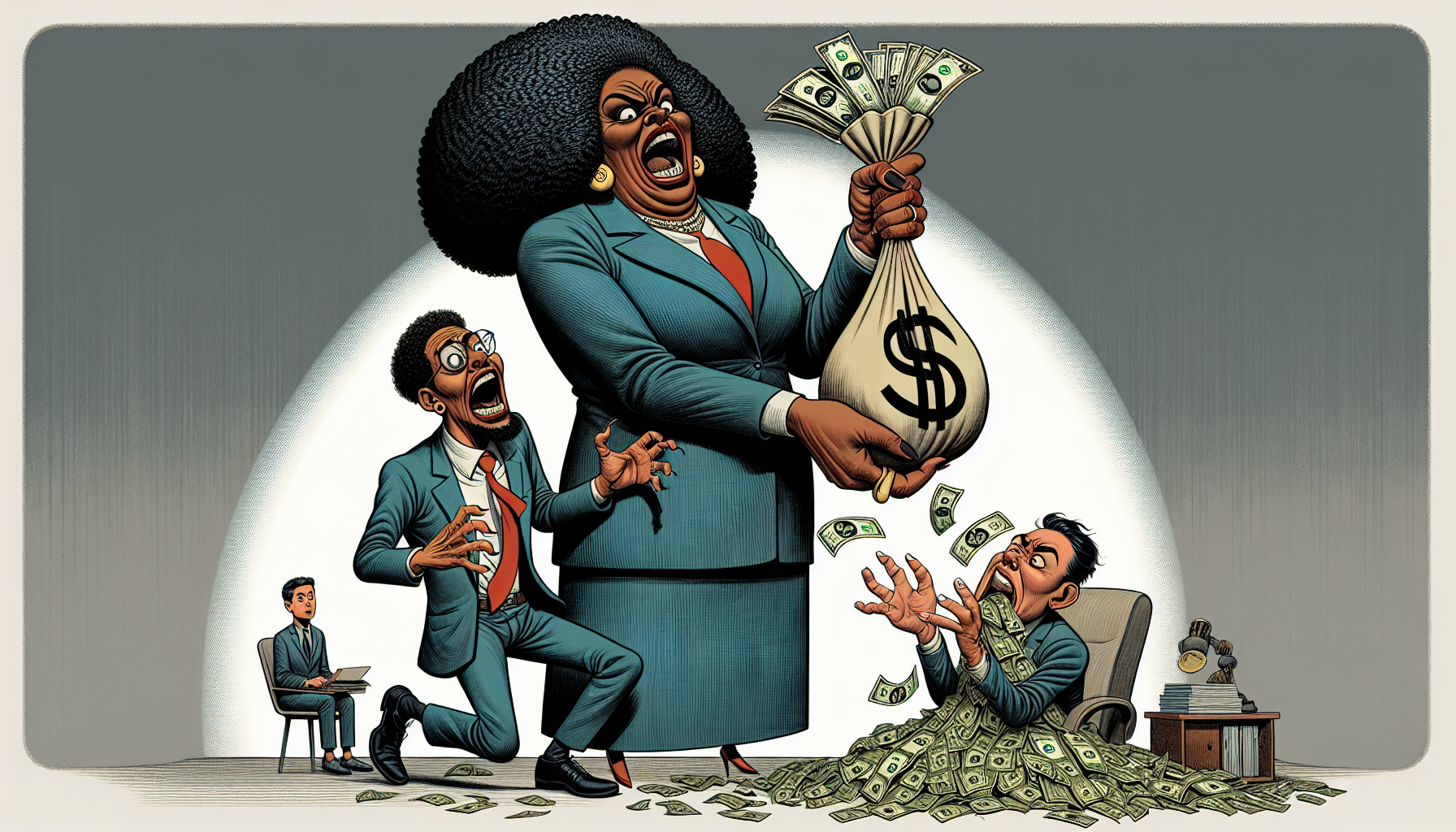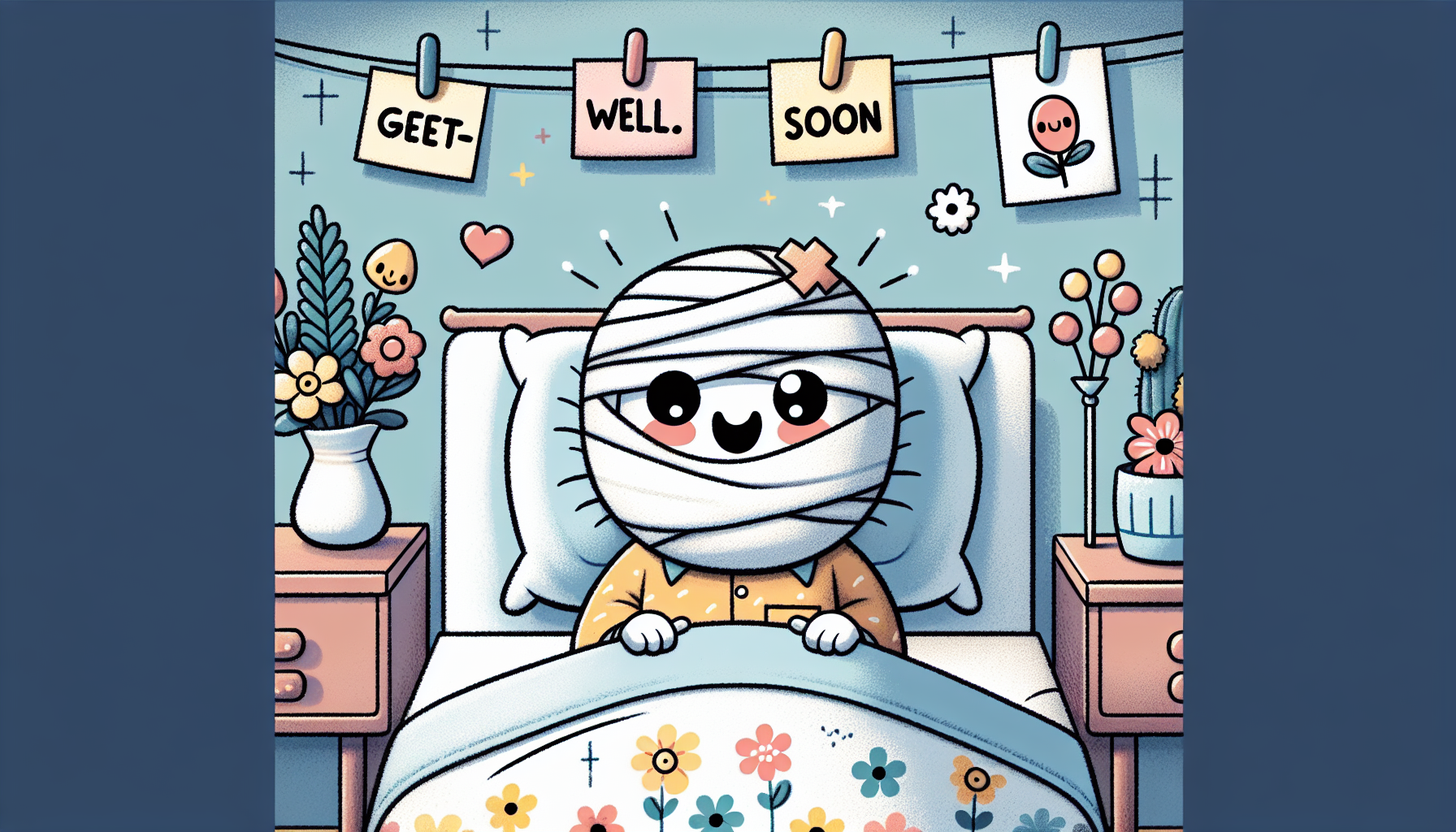What Can I Do If My Chapter 13 Payments Are Too High?

Filing bankruptcy under Chapter 13 is not easy. Since the premise of a chapter 13 case is based on repaying some portion of your debt over a three or five-year plan (aka a long time), lots of things can happen in that time to make it challenging to continue making your plan payments. An ex-spouse stopped making alimony payments. The cost of your car insurance jumped up. You experience an injury or illness. All of these are things that can naturally occur – not the fault of anyone – and they can cause temporary financial issues (and sometimes, long term issues). As a result of this life event, however, making your chapter 13 payments have become significantly more challenging than you can manage, and that can be stressful. If you feel your chapter 13 payments are too high, it’s important to know what options are available to you so you don’t dismiss your chapter 13 bankruptcy.
Understanding Chapter 13 Bankruptcy

Filing chapter 13 bankruptcy allows individuals with regular monthly income to propose a plan to repay some or all of their debts. As per bankruptcy law, The plan you propose will make installment payments to the trustee or a creditor (in the case of ongoing mortgage payments or payments on auto loans) over three or five years.
There are requirements that every chapter 13 plan must meet. You and your attorney (if you are working with one) will discuss the plan with the chapter 13 trustee to address any potential issues with the plan. Issues that often arise may be creditors not being paid the correct amount, or that your documentation showing income doesn’t show you can afford your monthly payment as proposed.
Once these issues are corrected, and you have a confirmable plan, there will be a confirmation hearing so that the bankruptcy court approves your plan and enters an order reflecting this. After the court approves your chapter 13 plan, you will make the plan payments to the chapter 13 trustee and/or to creditors as proposed under the plan.
Reasons for High Chapter 13 Payments
The amount you’re required to pay under a Chapter 13 plan will depend on several factors. What your monthly payment under a chapter 13 plan will be depends on your income, your expenses, the property you own and the debts you are attempting to pay.
Many times, for instance, chapter 13 bankruptcy is filed to stop a foreclosure and save a house. Under the plan, the debtor must propose to repay the arrears over the life of the plan. This can often mean thousands and thousands of dollars spread out over 60 months, which results in a high chapter 13 plan payment. Below are some more reasons why someone may have to propose a plan with seemingly high chapter 13 plan payments.
High Monthly Income

I’ve found that often people first file a chapter 13, they are under duress. The file their bankruptcy petition often under the threat of a foreclosure, repossession or wage garnishments. Because they want to avoid losing their property, they believe they will do whatever it takes to make the chapter 13 case work, and are optimistic that they can succeed.
If you have a high monthly income, with a pretty substantial delta between income and regular monthly expenses, you might initially believe you can manage the plan. Over time, however, as expenses grow, and even your priorities change, you may feel constrained by the chapter 13 case lingering, often preventing people from building a savings cushion or being able to travel.
Unfortunately, under the bankruptcy code, one of the ways the plan payment is determined by your ability to pay based on your income minus your necessary living expenses. If what remains (your disposable income) is significant, your monthly payments will reflect this.
Large Amount of Debt

If you are paying $50,000 in unsecured debt in a chapter 13 plan, and you have to pay 100% of these claims, that’s a monthly plan payment of at least $833.34 (not including the trustee’s fee). Having a large amount of debt can significantly impact the calculation of your Chapter 13 plan payments. The more you owe, especially to unsecured creditors, the higher your payments might be to ensure that these debts are repaid within the plan’s timeframe. This situation can make it challenging to manage your payments alongside your regular living expenses.
If you’re paying less than 100%, this can be incredibly stressful as well, since the documentation requirements tend to be more stringent. When paying less than 100%, you may have to turn over tax return refunds, provide proof of all income increases, and even file a modification of your plan increasing your monthly payment if they budget allows it. Also consider that if you want to keep property that is collateral for secured debt (such as a mortgage payment or auto loan payment), you will have to remain current with those payments throughout your bankruptcy case.
It’s important to accurately disclose all your debts during the bankruptcy process. Misreporting or underestimating your debts can lead to issues with your repayment plan, or even referral to the United States Trustee’s Office to investigate bankruptcy fraud. If your debts are particularly high, this might necessitate larger payments to satisfy your repayment obligations within the Chapter 13 plan period.
Nonexempt Assets

In Chapter 13 bankruptcy, certain assets you own may be nonexempt, meaning they’re not protected under bankruptcy exemptions and can affect your repayment plan. If you own valuable nonexempt assets that you wish to keep, your plan may need to account for their value, leading to higher payments.
In chapter 13, you have to pay the value of nonexempt assets you want to keep into the plan. For instance, let’s assume you have a car you own outright with nonexempt equity of $10,000. If you want to keep the car, you would have to pay that equity into your chapter 13 plan.
This is because the bankruptcy code aims to ensure that your creditors receive at least as much through your repayment plan as they would if your nonexempt assets were liquidated under Chapter 7 bankruptcy. Understanding which of your assets are nonexempt and how they impact your payments is crucial in navigating the Chapter 13 process.
Reasons why Chapter 13 Payment May Become Too High

Your Chapter 13 payment might become too burdensome for any number of reasons. Changes in your financial situation, like a decrease in monthly income, can suddenly make your current payment plan unmanageable. Additionally, life events such as separation, divorce, or the death of a spouse can drastically alter your financial landscape, impacting your ability to make payments.
Unexpected expenses and increases in living costs, including a rise in escrow amounts for mortgage or unforeseen medical bills, can also contribute to the difficulty in meeting your Chapter 13 obligations. When faced with such challenges, it’s essential to consult with your bankruptcy trustee and consider options to adjust your payment plan.
Change in your monthly income

A reduction in your monthly income can significantly impact your ability to keep up with Chapter 13 bankruptcy payments. When income decreases, meeting the financial obligations set out in your repayment plan can become challenging, leading to stress and uncertainty about your financial future.
In such situations, it’s critical to consult with your bankruptcy attorney as soon as possible. They can advise on the best course of action, which may include seeking a modification of your Chapter 13 plan to reflect your changed circumstances and ensure your payments are still manageable.
Separation, Divorce, or Death

Life-changing events such as separation, divorce, or the death of a partner can have profound effects on your financial situation and your ability to maintain Chapter 13 bankruptcy payments. These events can lead to a significant decrease in household income or an increase in expenses, making it challenging to comply with your repayment plan.
In navigating these difficult times, it’s crucial to reassess your finances and consider how changes in your situation may impact your Chapter 13 payments. Seeking legal advice can help you understand your options and take the necessary steps to adjust your payment plan accordingly.
Increase in escrow amounts for mortgage
An increase in escrow amounts for your mortgage can unexpectedly raise your monthly expenses, impacting your ability to afford your Chapter 13 payments. Escrow increases often reflect rises in property taxes or insurance premiums, which are beyond your control but can significantly strain your budget.
If you’re facing difficulty with increased mortgage and car payments under your Chapter 13 payment plan, it’s important to act swiftly. Consulting with your bankruptcy attorney can help you explore options, such as filing a motion to modify your plan, to account for these increased expenses and maintain bankruptcy protection.
Unexpected Expenses

Unexpected expenses, such as emergency medical bills or urgent home repairs, can disrupt even the best-planned budgets, making it difficult to keep up with Chapter 13 payments. These unforeseen costs can quickly consume your available funds, leaving little room for your scheduled bankruptcy repayments.
When faced with sudden financial demands, it’s important to communicate with your bankruptcy trustee and explore options to adjust your payment plan. This may involve temporarily suspending payments or seeking a plan modification to accommodate your new financial reality.
Options for Lowering Your Chapter 13 Plan Payment
If you’re struggling to afford your Chapter 13 payments, several options may be available to help. A reduction in income, increased living expenses, or unexpected financial hardships can all justify a reevaluation of your repayment plan. Consulting your bankruptcy lawyer is a crucial first step in exploring these options, which may include a modification of your plan reducing your payment, converting to Chapter 7 bankruptcy, or even seeking a hardship discharge.
Request to Modify Your Chapter 13 Bankruptcy Plan

If your financial situation changes, requesting to modify your monthly chapter 13 plan payments may become necessary. This process involves filing a motion seeking modification of the plan. A hearing must be held before the bankruptcy judge where you must demonstrate how your financial circumstances have changed and why a payment adjustment is needed.
When filing a motion to modify a chapter 13 plan, keep in mind that you will have to also amend your bankruptcy forms, especially your Schedules I and J (the schedules for income and expenses). Obtaining a court ordered downward modification with the court requires detailed documentation of your income, expenses, and any factors that have led to the need for an adjustment, as creditors will often object to these motions. Successfully modifying your plan can help ensure that your payments remain manageable and that you can continue to meet your obligations under the bankruptcy code.
Converting to Chapter 7 Bankruptcy
For some, converting their case from Chapter 13 to Chapter 7 bankruptcy may offer a more feasible solution to financial hardship. This option is particularly worth considering if your income has significantly decreased or if you’re facing insurmountable expenses that make continuing with Chapter 13 payments impossible.
Converting to Chapter 7 can provide relief from certain debts through liquidation, rather than repayment. However, it’s important to understand the implications, including the potential impact on personal loans and other assets. Really important in a conversion to chapter 7 liquidation will be to consider what nonexempt property may be taken by the bankruptcy trustee to sell and pay creditors. If you think chapter 13 has become untenable and you have to file a motion with the court to convert to chapter 7, it’s super important to consult your bankruptcy attorney as early as possible to map out the impacts of proceeding with the conversion.
Seeking Hardship Discharge

Under certain circumstances, you may qualify for a hardship discharge if continuing your Chapter 13 repayment plan becomes unfeasible due to circumstances beyond your control, such as severe illness or injury. Under these circumstances, if you don’t file for a hardship discharge, generally the trustee’s office will file a motion with the court to dismiss your case. To obtain a hardship discharge, you must demonstrate (1) the debtor’s failure to complete plan payments is due to circumstances beyond the debtor’s control and through no fault of the debtor; (2) creditors have received at least as much as they would have received in a chapter 7 liquidation case; and (3) modification of the plan is not possible.
It’s important to be aware that the hardship discharge is more limited than the discharge described above and does not apply to any debts that are nondischargeable in a chapter 7 case, such as some kinds or taxes or domestic support obligations (like child support and alimony). Any remaining debt, such as credit card debt, other general unsecured debts and secured debts should be discharged. Working with your bankruptcy attorney to file for a hardship discharge can offer a path forward when your financial landscape changes dramatically.
Work with an Experienced Bankruptcy Attorney at the Law Office of Richard Kistnen
Developing a feasible chapter 13 plan with your bankruptcy attorney involves negotiating terms that are fair to you and your creditors. The plan will detail and control how you intend to manage your debt over the repayment period. Your attorney will help you calculate a reasonable monthly plan payment that fits your budget while satisfying the court’s requirements.
After you file for chapter 13 bankruptcy, it’s not uncommon for financial situations to change, and if this happens, your attorney can file a motion to modify your plan accordingly. They’ll work closely with the trustee and creditors to ensure any adjustments are fair and reflect your current financial situation. This flexibility is a key advantage of Chapter 13 bankruptcy, providing you with the support needed to navigate unexpected financial changes.
Seeking debt relief can be stressful (especially if you’re under the threat of a wage garnishment or foreclosure) which is why finding the right chapter 13 bankruptcy attorney is a pivotal step when considering filing for bankruptcy. With the guidance of an experienced lawyer, like the Law Office of Richard Kistnen, navigating these complex laws and procedures becomes manageable, reducing your stress. We will assist in helping you organize all necessary documents and be as thorough with you as possible so you understand what’s going on every step of the way.
If you’re grappling with significant card debt, need to stop a foreclosure auction, and things like debt settlement and debt consolidation loans have only made things worse, it’s time to take action now by calling the Law Office of Richard Kistnen at (718) 738-2324 or clicking this link right now to book your complimentary, no-obligation virtual bankruptcy consultation. Get your debt discharged and start rebuilding your credit score and your financial health today.
